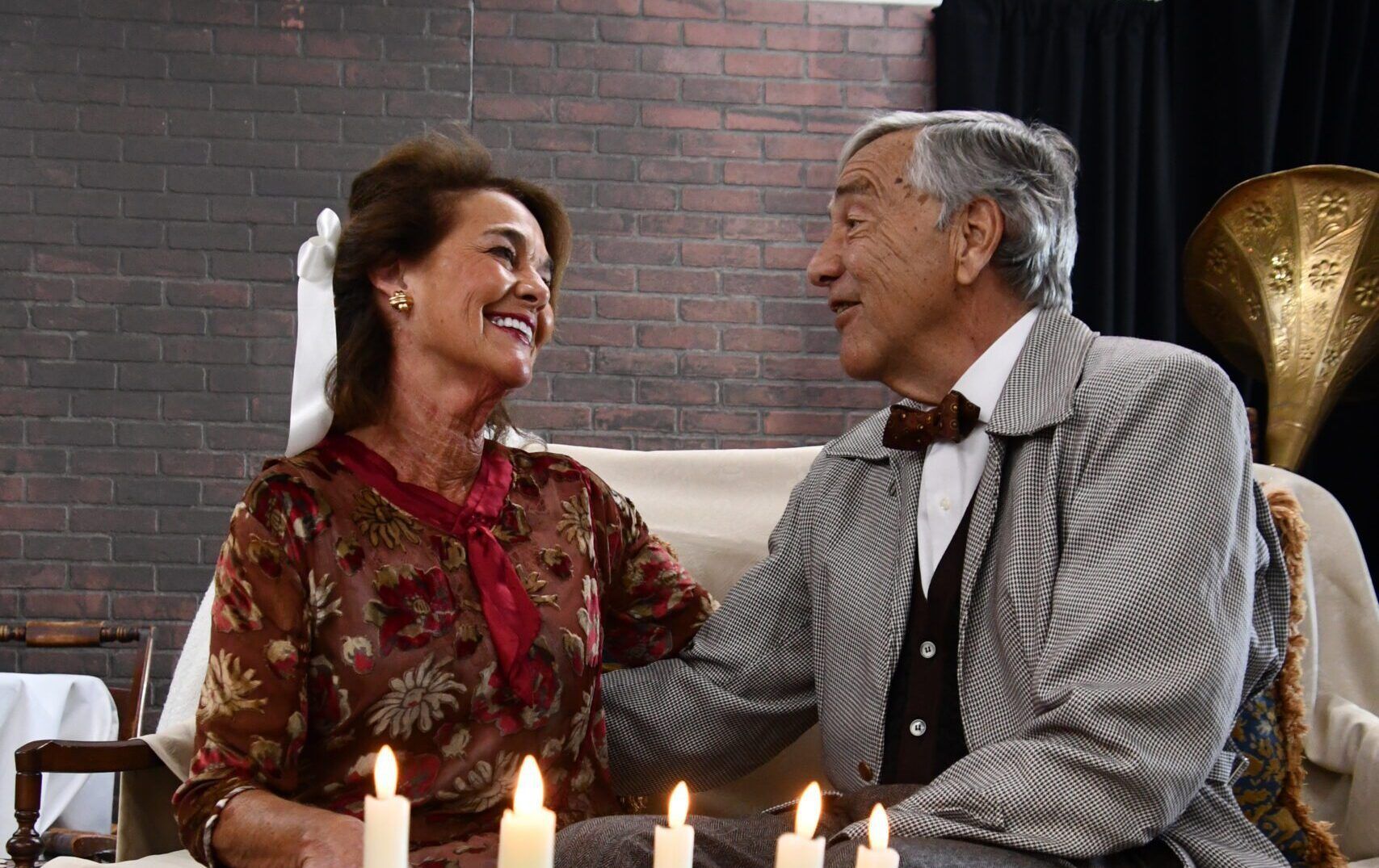Preview: Who’s playing in upcoming ‘The Glass Menagerie’

BY BOOTS TOLSDORF
In September we all suffered from two horrific hurricanes. Our realities were shattered. We had to face the hard truths of our present devastation and get on with repairing our homes, and most importantly our souls. One might say that the difficulty in accepting our reality without withdrawing into a kind of escapism is a distant parallel to the major theme of this timeless masterpiece.
I am not compelled to summarize at length the semi-autographical story Tennessee Williams wrote in 1941, for I am pretty confident that most of us have at some point either acted in the play, studied it in lit classes or seen it on stage. I would rather concentrate on the development of the players.
Amanda Wingfield, mother to Laura and Tom, is perhaps the most tragic of the four. She lives with one foot in reality and the other deeply rooted in illusions. She wants the best for her children but completely fails to understand that their desires are quite different from what she dreams for them. Ann Fletcher brilliantly performs the “dance” of fluctuations between her youthful illusions when she was the Belle of Blue Mountain, and the harsh reality of a daughter who is painfully socially inept and a son who does not live up to her expectations. Ann is extremely skillful at juggling her character between being very giddy and flirty, other times brought to tears, other times angry and almost cruel, and other times loving and protective. Her role reminds me of a roller coaster, steady on the track with her hopes, but subject to falling into an abyss of her failures and then mounting to the circumstances presented to her. Ann is fierce and commanding in her world of reality. Bravo.
Laura, delicate as a glass figurine and just as breakable, is played by the very accomplished Maggie Bush. Maggie wears the cloak of brittleness in the way she drags her “crippled “ foot and her shy demeanor with a body so rigid that you are in pain for her. Laura’s fragility, loneliness and purity is captured deftly by Maggie. Laura depends on brother Tom for her “outside “ reality by his shared nightly activities. Her world of illusion in her collection of glass figurines allows her to retreat into her uniqueness safely until one of them breaks and shatters, as does Laura’s transparent and delicate facade. Maggie brings Laura into lovely moments in her scene with Jim where she blossoms, if only briefly, into the symbolic name for her, Blue Roses. The transformation is utterly believable. Bravo.
Son Tom, both the character as well as the narrator, underlines the play’s tension. Hal McCombs, as narrator, deftly confuses us, the audience, because we are not sure we can trust his assessments of what is going on at present. Is it truth or his distortion of the truth? Hal’s strength is his uncanny ability to portray this young man of contradictions. On the one hand we know that Tom has aspirations of escaping the boredom of the household and his overbearing controlling mother, and on the other hand we see his anger being really cruel. And on a third hand we see his devotion and protection, perhaps incestuous, to his sister Laura whom he deserts physically but never emotionally. Hal brings some humor, of which he is well known, into this drama. Bravo.
Jim, played by Scott Wise, is a young “ordinary” friend of Tom’s who comes to dinner as a “gentleman caller” for Laura. He is not in any sense like the “callers” that Amanda had in her youth. However, as he is a possibility that he might be entranced by Laura, Amanda goes all out to make it a special affair. Scott comes to life in the presence of Laura who he finds intriguing in her “uniqueness.” He attempts to build her up by saying that she is special and in need of self-confidence. In their after-dinner conversation, Jim begins to fall back into his illusion of greatness when in high school as the all-star popular young man. Laura opens up about her affection for him (which he knew nothing about), and her enthusiasm for him puffs up his ego and he delights her with compliments of how her “differences” are indeed treasured.
Scott is so believable as he draws Laura into his world of illusion of bygone days and she begins to enjoy feeling a level of comfort and familiarity with him. Scott has a playful and sweet demeanor with her and asks her to dance. However, a missed step and Laura’s favorite glass figure, a unicorn, is broken. Jim is saddened by making the unicorn no longer distinctive. Great symbolism here. Scott is tender and caring, and Laura gives him the broken figure as a souvenir. He kisses her softly. Scott ingeniously transforms the moment to one of heartbreak as he realizes that he has crossed the line of reality and illusion because he announces he is engaged. Bravo.
This work of art is full of the family struggles with the weight of memory, their dreams and fantasies and how each one tries to find an escape from their stifling world. I found it difficult to stop writing because there is so very much to digest, to internalize, to look for all the ways these performers brought their characters to life under the expert guidance of Holly Wilson, the Director. This play is already challenging, and to have to meet via zoom since last summer and finally have a chance to get together after the holiday has been an ambitious endeavor. So, kudos to all. The RPP family thanks Kimberly Whipple, who stepped into place as stage manager when Elaine Skypala broke her leg, and Linda Rollyson, who is assistant stage manager.
In the not-so-distant background, doing costumes, props, lighting, etc., are ever-present Arne Preston, and Ryan Mutkoski, our new Assistant to Mike Hilton, technical director.
If you have not procured a ticket, come on down to the show on January 17 and 18 at 7 p.m., and January 19 at 5 p.m., because there are traditionally always a few seats of no shows.








